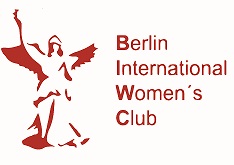The prehistory of Hestia e.V.
Domestic violence is a daily reality for millions of women and children worldwide. It happens in almost all cultures, at all economic levels and is a particular problem within patriarchal societies.
It is estimated, in Germany, that every fourth woman experiences violence in her domestic life. On average, an attempted homicide of a woman is reported daily and, currently, a woman in this country dies of injuries inflicted by her partner or former partner every few days.
It has taken a long time for this suffering to be publicly recognized, and even longer for the victims of this physical, psychological and sexual violence to be offered help and protection.
In 1976 the first autonomous refuge shelter for women fleeing domestic abuse was founded in West Berlin, followed by a second refuge in 1979. At that time the mistreatment of women and children wasn’t officially recognized in East Germany (Deutsche Demokratische Republik – DDR). It was a taboo subject – denied and disregarded. Violence towards women nonetheless existed and was well documented via the reasons given for divorce, women’s calls for police intervention, experiences reported at marriage and counselling centres, the work of educators, welfare and childcare workers and in the emergency rooms of hospitals as well as in accounts written by women.
Apart from a few religious institutions, there were no women’s shelters and no effective assistance which made it extremely difficult for women to free themselves from the cycle of violence. The lack of housing in the DDR made divorce difficult so many women endured abusive relationships for years. Intervention in the cases of children affected by violence often consisted of taking them out of the family and placing them in children’s homes and youth facilities.
The founding of Hestia
In 1989, a group of professional women in East Berlin founded the “Association for the protection of physically and psychologically threatened and abused women and their children” e.V. (Verein zum Schutz physisch und psychisch bedrohter und misshandelter Frauen und ihrer Kinder e.V.)
They started by collecting and publishing the few known existing facts and figures on the subject. They also approached political decision-makers and discussion groups. They asked for support in finding a suitable property to build a women’s shelter and in 1990, through the commitment of a Berlin citizens’ initiative, the association was given a former NVA (military) hostel, which was in need of renovation.
The Federal Ministry for Women’s Affairs supported this project with start-up funding and the (Berlin) Senate Department for Building and Housing provided further extensive financial resources for the necessary conversion and extension measures which took about two years. In the meantime, in order to provide shelter for the women who had already approached the association in large numbers, 12 flats were rented and a contact and counselling centre for women in crisis situations was set up. Three years later, this developed into an independent refuge project.
In 1991, the Association also took over a women’s shelter that had been funded by the municipality for 4 years.
On May 19, 1993, renovation work was completed and the third autonomous women’s shelter was finally opened.
In 1995, the original Association was restructured and given a new name, Hestia e.V. after the ancient Greek goddess of the hearth and home.
Today, the Hestia-Frauenhaus Association runs two projects: Hestia shelters in Prenzlauer Berg and Wedding as well as Hestia Women’s Shelter. The projects are financed by grants from the Berlin Senate’s Department for Women but these funds are not sufficient to cover all the costs. This means that Hestia-Frauenhaus depends on donations to enable abused women and their children to start a new life free of violence.
Monetary donations are used for:
– paying for urgently needed documents
– purchasing tickets for public transport
– buying medicines
– purchasing food & hygiene articles
– financing excursions and leisure activities for mothers and children
– buying Christmas presents and ….so much more
Hestia-Frauenhaus is also happy to receive donations of:
– clothing for women and children
– prams and highchairs for children
– school materials and satchels (book bags)


